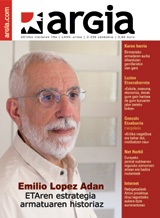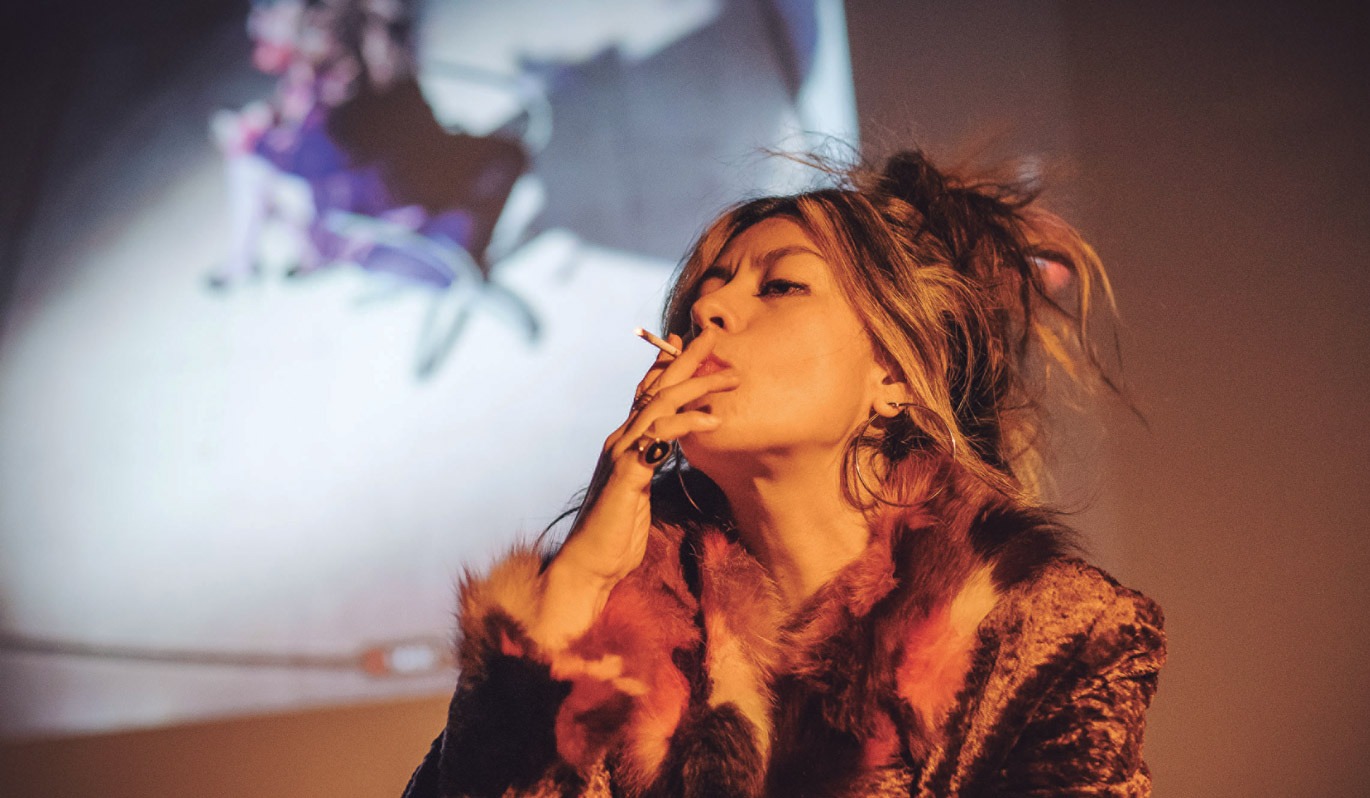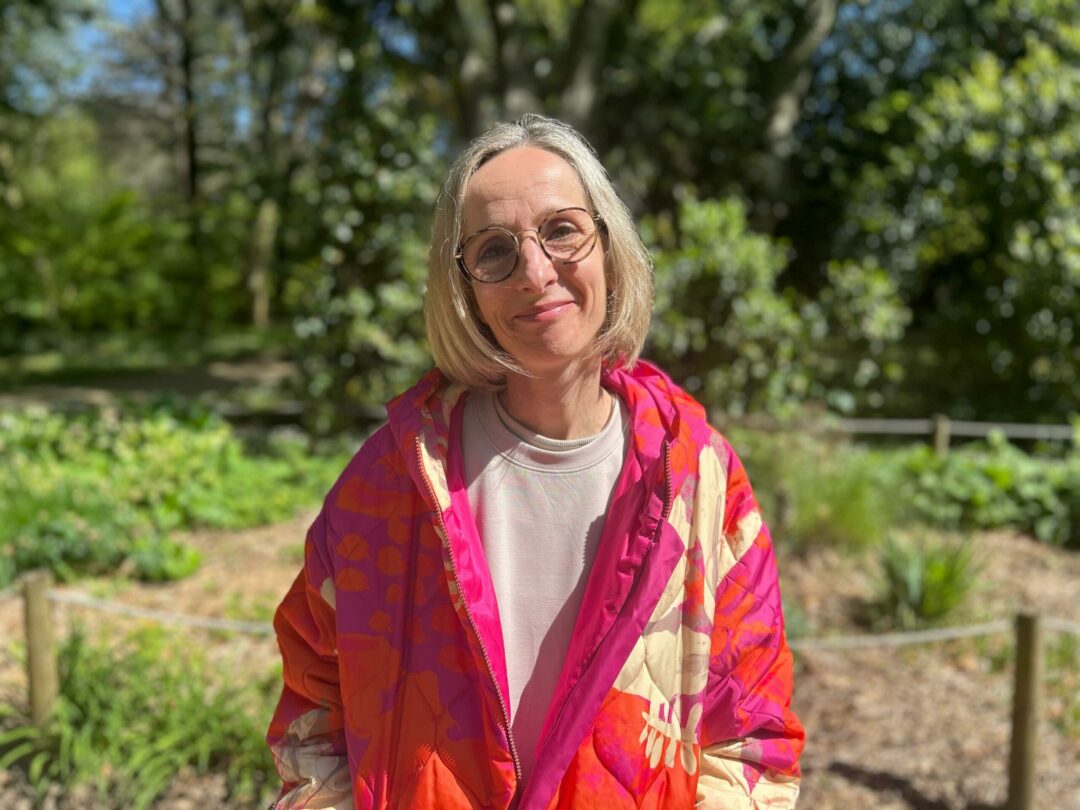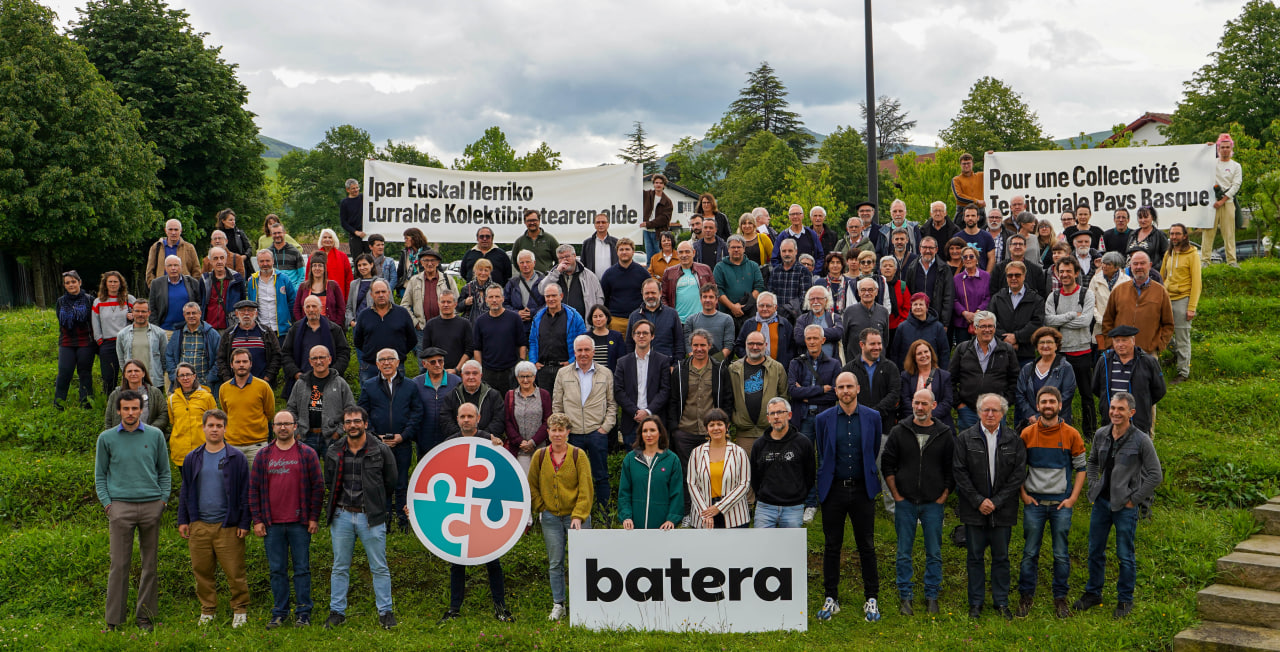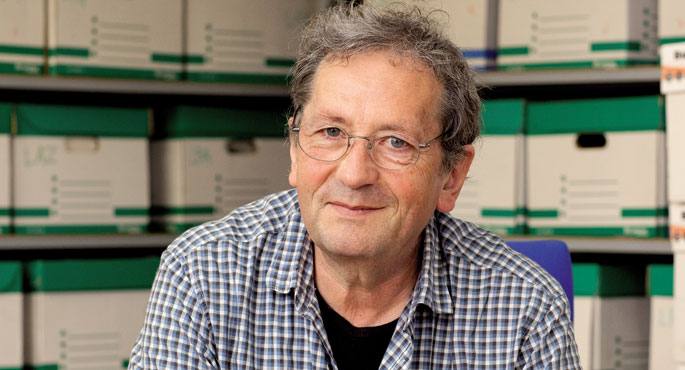
It's the miracle of meeting you've had with Euskal Herria.
When you enter French school and French culture, you live without knowing that you are Euskaldun. In the 1950s, France was one of the largest empires in the world, and the prestige and progress of its culture had been rapidly internalized. However, we all have a personal story, and I saw the film Mourir à Madrid by Frédéric Rossif, who reported the Spanish civil war in the eyes of the Republicans. It was amazing, I'd been in high school, I'd had left-wing teachers, but I'd never heard a single critique of Franco and fascism. We saw the cruelty of the Germans, not the Spaniards. The film featured an ikurrina, a resilient Basque Country, the Basque Country, Gernika... It was a training shock to me, a terrible emotion. The following year, when I was in Pau's school, I discovered from Jean Louis Maitia's hand that there was a fighting Basque culture that I wanted to live, and it was a cross between my natural identity and my political identity. So I understood that we were subject to lying, that we didn't have any keys to understanding what was really going on. Seeing those who spoke in Euskera despised and treated like a zero, I was angry, and at the same time, I experienced the first kicks and arrests of the police as part of the campaign to free Christiane Etxaluz. This strengthened my convictions at the root. Some will say that with affection they talk to the Basque Country, he brought me red cholera. That's why my way of making the revolution has been to work and improve the Basque.
However, after completing his studies and working as a teacher, he spent almost ten years in Paris.
In Paris I was also close to Euskal Herria, as I spent here two days a week. In addition, in the Basque Country Etxea in Paris I found another Basque world and other questions: “What is Basque identity?”, “What is Euskal Herria?”, “What value do we give to our culture to make it valuable to others?” Of the most difficult, but I was very much ahead of talking about the Basque Country with friends who were not Basque. I felt that desire for freedom, the desire to own the house, the desire to live together and to be safe, all agreed. I also had aesthetic reflections and the Quosque Tandem de Oteiza showed me that in the small things there were many reasons to love the Basque Country. We have not created empires, just a few songs, a few stones placed in a circle, we have looked with respect at the figures of the caves, we have put the water in value... Far from the great gods, we have added the soul to things. On the other hand, he worked in a laboratory that studied the physiognomy and ergonomics of work, and lived in a union world of communists and socialists. As I approached the working-class world, I observed to what extent knowledge and wisdom are important for one's own personality, for one's own defense, and that the world must be seen from the eyes of the worker, not from the eyes of the entrepreneur. To understand things, each world must be analyzed from the eyes of its protagonists.
Have you put all of these theories into practice in the creation of Tours Irratia and in your journalistic work?
In the early 1980s, it was the time of free radios. I had met in Paris some clandestine radios that were nice to me, and the fights back then showed that when people came together and wanted something, especially, I was taking the floor, and that changed the world at its roots. On the radio I found the opportunity to take the floor and to tell our world. In late 1981, I quit my job in Paris and I started on the radio. It was a big leap, but it was a terrible dream, because for me it was a dream to take the word of one people and to make it known to other people. At that time, you couldn't listen to a Basque song anywhere on the radio, and people wanted to listen to music, the songs of the weekend recitals. We believed that politics and debate were the most important, and we wondered if it was worth spending so much force on rich creations and programs when people wanted simple things. I have always thought that we should offer in Basque the most elaborate products, the best and the most beautiful, and for that we need the most educated journalists. Euskera is not a grammatical problem, it is not a technical problem of communication, it is a medium of culture, knowledge and transmission. That's why we've made operas in Basque, complicated literary representations, innovative formats... Quality is what determines the universality and acceleration of the Basque culture will determine the permanence power of the Basque country over the future.
That’s why you’re working on the show that counts on our people at the weekend in Paris, Berlin or Barcelona?
Sometimes, she asks my mother what's new and answers me with a news story she's heard on television. This is a consequence of conditioning, but people know their world. The worker is the one who has the most capacity to talk about the world of work, the Basques to talk about the Basque world... Confidence may be naive, but I am convinced of that. When people feel free to talk about themselves and the world, very interesting topics are mentioned and, above all, the desire to live is shown. It seems stupid, but in the present century you need the ambition to live. The power of intellectuals, doctors, teachers, lawyers is oppressive: they know everything and you know nothing. Today, we have more tools than ever before to be free, but what do we do with that freedom? We should use ourselves to strengthen our own opinions, criticise them or develop them, and oppose the future wisely. Victor Hugo said that the world would change by knowing, that opening a school was closing a jail, and that's where we are. There are so many worlds fighting around us in Egypt, Syria, Palestine ... Are they not closer to us than the battle lost by Michèle Alliot Marie?
Distances, does it cost to make people talk?
It's hard because they make us believe that identity, culture or school aren't in our hands, that we don't know anything, and that those who know it will make us clear. Older people have been undervalued in their personality. The agricultural technicians have called them stupid because they're working on the usual molds, and what things are, now it's those molds that are being revalued. There have been many humiliated people in our country, and yet the French do not accept that with their pride and contempt they have colonialist attitudes that can provoke violent controversies. In France they complain that the Americans are colonizing French culture, but what do we have to say? That puts us Basques in the face of hard debates. For example, are there ways to cultivate bilingualism or culture and take it forward that don't help that colonization? Debate, the word of the people is missing, knowing that in Euskal Herria people have a great awareness of their identity and that they treat it with respect. I, young or old, believe that the idea of each one should always appear, and if there is no room for it, we will have to create new spaces for the good of all. There is always something to learn from others.
As for bilingualism and debates, does it help to assert in French the official status of the Basque Country?
Erramun Baxok said we had to build reality, because the law had no choice but to accept it. If we are strong in Basque, we will have to accept ourselves. If not, what do we see? The beautiful statements of Maitia and Brisson, the screams of the Basque Country, the advisory committees... All right, we have to ask for the officialdom, but I think we have to take into account the passage of the ikastolas. We have to take things on board. School, health, economics, the assumption of all is the main way to own ourselves. 5% of Baiona-Angelu Biarritz’s votes are Basque, but that does not mean that the remaining 95% will be voted in Basque. What do we do at discharge to encourage the Basque Country? Do we have to be in sight of Paris to learn and speak our language? I believe that this year has been the first campaign in which not a single word has been said about popular languages. I am not too political and I look beyond what can come from above to what we can do to strengthen our reality. As Txepetxe said, we have to create spaces for the use of the Basque, to make the Basque attractive. Why and what are people going to learn for? What are the motivations? I have no solution, but I don't think we have to spend too much on grammar or linguistics. It is not enough to investigate language, to break with reality, to get it dirty. Sartre said that because they don't have dirty hands, they don't have their hands, and so that they don't say it for us, let's go into the salsa, let's make our contributions in Euskera in the areas we like.
Is this philosophy the Maiatz magazine and publishing house that coordinates since '82?
In the early 1980s, with the arrival of the left to power, it was the Basque days and I was surprised to see how we fell in the great tar-tar. We didn't ask it by chance, but we thought everything would come above us. I believe that people have the power to come together and to move things forward, which is our salvation. I do not believe that projects should be thought of on the basis of subsidies. When you do something, withdraw the aid. Today it is easier than ever to make a book, why not take advantage of this freedom? In France, the book of someone unknown comes out in a 500 throw and nothing happens. What is a book for? We have a group of people who want to dedicate a job to their world, isn't that good? Isn't the essence of the book to offer something to others? I am astonished to see so little interest in the publication. Isn't it also a way to bring people together?
May and Tours Irratia have turned 30, Euskaldunon Egunkaria/Noticias 22. Do we realize the path that has been taken?
I do not believe, but you know, freedom is always provisional, there is always someone who threatens it, and we are obliged to continually defend our freedoms and our rights. In the midst of the crisis we are experiencing, who can think that the aid for the Basque people will not go down? How can we believe that current aid will last? We have to take things on board, we cannot think that we will survive by inertia, solidarity is more necessary than ever. In the Basque press and on the radio we cannot be civil servants, we need continuous schooling, reading, attending cultural events... We cannot become broadcasters of radio and newspapers that have nothing to say. We have to nurture the spirit of freedom and give people the word, that is our only strength. People reflect from the moment they take the floor, meet and build the future. To do so, we must maintain freedom, create independent groups that are not subjects of anyone. We are leaving too many areas of Basque cultural activity on the net that the institutions control. What makes us move forward? What awakens us from the desire to do things? We need a broad culture. Shouldn't universal networks be woven to override the information of dominant networks? Ttipion will always tell us that our world is insignificant, narrow, with no prospects, but it's false, we're looking at the world and maybe we can clear better than the great paths of the future. Knowing ourselves, estimating and reducing conflicts will give us the ability to live satisfied with being Basque, as our world will not end in a minimum percentage of Euskaldunes, but in the quality of the open doors that we make thanks to the Basque.
1946ko abenduaren 14an sortu zen Hazparnen. Fisikan lizentziatua Paueko unibertsitatean, Maiatz literatur elkarteko sortzaile eta koordinatzailea da hastapenetik gaur arte. Gure Irratiaren sorreran ere parte hartu zuen, bertako langilea izan da urte luzez, eta egun 2012ko Argia Saria jaso duen Gure Bazterrak emankizunaren arduraduna da. Euskaldunon Egunkariako hastapenetan Baionako erredakzioan egin zuen lan, eta Inter Porcos: kronika aberezaleak liburuaren egilea ere bada, euskal prentsako ohiko kolaboratzaile izateaz gain.
"Ttipitatik izan dut irratigintzaren miresmena. Gogoan dut 4-5 urte nituela, irrati xahar bat genuela, eta berriak entzuten genituela gure etxe-xokotik, gauez, negu beltzean. Izigarria zen enetako gure zulotik munduarekin kontaktuan jartze hori, amesgarria zinez".
The whore’s monologue in the madhouse
- The author(s): Franca Rame and Dario Fo.
- From the translator: Assisted by Xabi Martinez De Lezea.
- The actor is: Assisted by Laura Penagos.
- When: April 12th.
- In which: At the Atxulondo Cultural Center in... [+]









